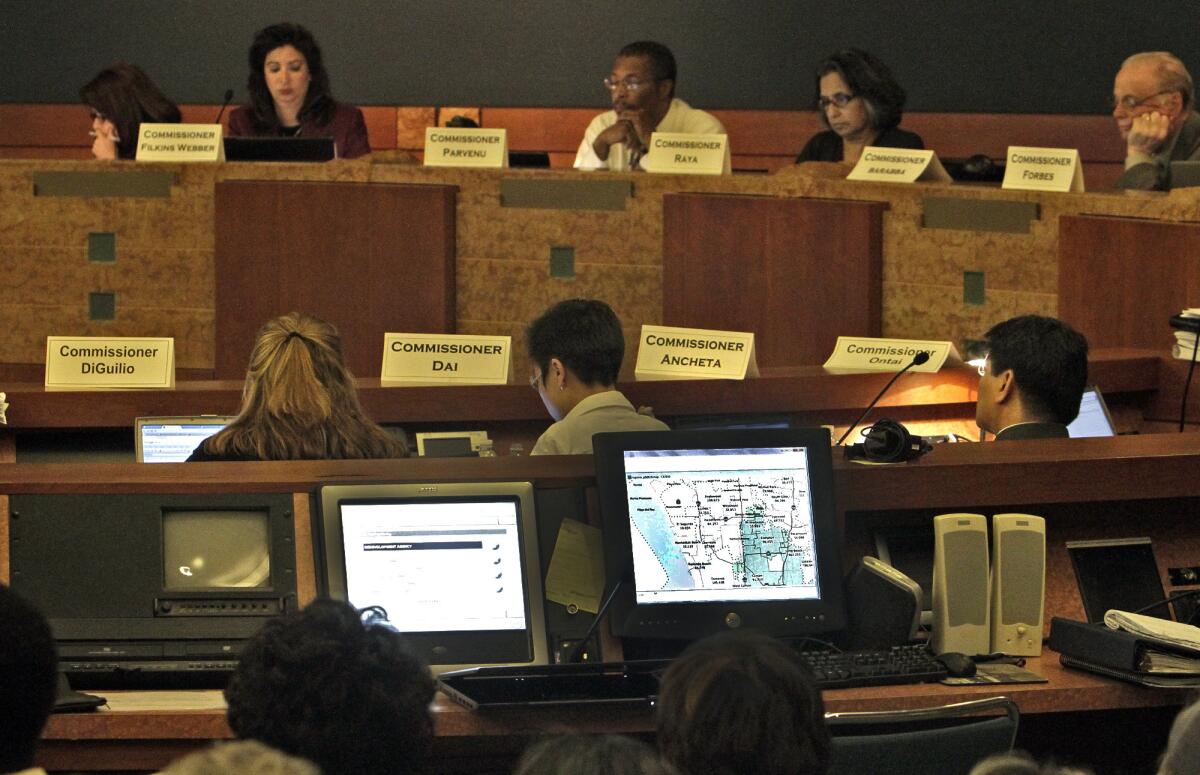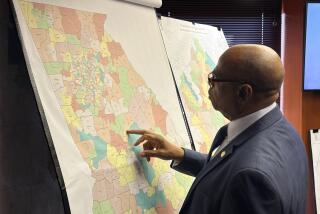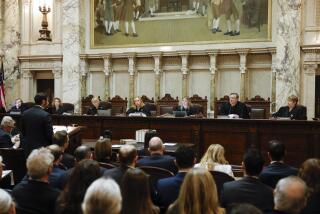3 former California governors back independent redistricting

Three former California governors are wading in to an Arizona elections case before the Supreme Court that could have major implications on how California draws its congressional and legislative districts.
Former Govs. George Deukmejian, Pete Wilson and Arnold Schwarzenegger, along with the California Chamber of Commerce, GOP mega-donor Charles T. Munger Jr. and entrepreneur Bill Mundell, submitted a brief late Friday stating their support for an independent commission that crafts a state’s districts, rather than restricting the task to state legislatures.
Arizona, like California, has an independent panel that draws the state’s districts. But Arizona’s legislature wants to take the job back and has challenged the constitutionality of allowing such a committee to determine district boundaries. They argue that legislators alone have that power.
The case is set to go before the Supreme Court in March.
California’s redistricting panel was created by a 2008 ballot initiative to draw state legislative districts; in 2010, voters approved extending its authority to draw congressional districts as well.
In their brief, the governors and their allies said that “for decades, the California Legislature abused its power to adopt congressional districts, at times adopting highly partisan gerrymandered districts ... and at other times adopting bipartisan ‘sweetheart’ gerrymanders designed to insulate incumbents of both major parties from electoral competition.”
The brief asserts that the Constitution allows voters to use the initiative process -- as they did in California and Arizona -- to delegate the redistricting power to an independent panel.
“The lines drawn by California’s Citizens Redistricting Commission have resulted in the fairest and most competitive elections in California history,” said CalChamber President and CEO Allan Zaremberg in a statement.
He added that the “Arizona litigation jeopardizes the will of the California electorate and its embrace of fair redistricting and competitive elections.”
Zaremberg said, in a follow-up interview, that the brief’s signatories were those who had “taken a leadership role in fair redistricting.”
The group has a noticeably GOP tilt -- the three governors are all Republican and Munger is a major party donor. Rick Hasen, a law professor at UC Irvine, said such an assemblage could be helpful in convincing Justice Anthony Kennedy, a likely swing vote on the issue.
“If, as in many cases, Anthony Kennedy is the swing voter, he is that same kind of moderate Republican as George Deukmejian, as the Chamber of Commerce,” Hasen said. “That’s the kind of Republican Justice Kennedy was before he was a judge.”
If the Supreme Court finds the independent redistricting commission to be unconstitutional, that would almost certainly pave the way for a challenge to the district maps drawn in California in 2011.
Hasen said the ripple effects could extend further to other California electoral reforms done by initiative, such as the open primary system.
“Anything that could affect how federal elections are conducted -- to the extent it would be done without the Legislature -- could be subject to being unconstitutional” if the court finds against the redistricting commission, Hasen said.
Follow @melmason on Twitter for more on California government and politics.
More to Read
Start your day right
Sign up for Essential California for news, features and recommendations from the L.A. Times and beyond in your inbox six days a week.
You may occasionally receive promotional content from the Los Angeles Times.







